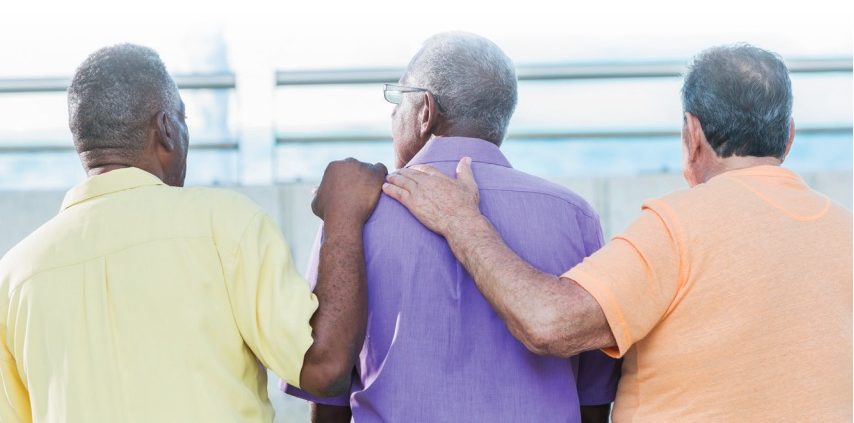Combat Changes Things: US Family Health Plan’s Dedication to PTSD Care
A version of this article was originally published in the Spring 2018 edition of “U” Magazine by US Family Health Plan member organization, Brighton Marine Health Center.
Service members who have experienced combat often have reactions such as irritability, sleeplessness, nightmares, jumpiness and flashbacks to combat events. They may feel depressed and lonely, even when they’re with friends and family. For many, these signs of stress go away after a few months. For others, the problems remain or get worse with time. These veterans may find that their health and their relationships with family and friends deteriorate. They may resort to misusing alcohol or drugs in an effort to feel better. They may have post-traumatic stress disorder, also known as “PTSD.”
Historically, seeking treatment for PTSD carried a stigma. Service members who sought help were concerned about being perceived as weak. They worried, understandably, that their chances of being promoted would be compromised.
Today, we know that stress after combat is what experts call “a normal response to an abnormal situation.” We know that living through a traumatic event can create changes in the brain’s pathways. We also know that effective treatments for PTSD exist, and that veterans who are treated for PTSD can go on to have healthy, productive lives.
“For the past 25 years, US Family Health Plan has provided comprehensive medical care to military families. As research continues on post-traumatic stress disorder, we continue to learn more about how best to treat this condition. Our understanding of the military’s culture and what many in the military have endured enables us to provide our members with compassionate, stigma-free treatment to help improve their quality of life,” said David Chicoine, Senior Vice President and Plan CEO of US Family Health Plan member organization, Brighton Marine Health Center.
Older veterans
Post-traumatic stress disorder can affect combat veterans many years after their war experience. According to experts at the U.S. Department of Veterans Affairs/National Center for PTSD, this may be because:
- Retirement may provide fewer distractions from difficult memories.
- The medical concerns that are a common part of aging may leave veterans feeling less strong and more vulnerable.
- Coverage of violence on television news and on the internet, which is often extremely graphic, can feel nearly constant and may trigger memories of wartime.
- Veterans who may have tried to cope in the past by using alcohol, then stop drinking later in life without learning healthier coping techniques, may find that their PTSD symptoms now seem worse.
Symptoms of PTSD don’t occur on the same timetable for everyone. Some veterans experience symptoms immediately after returning from combat and find that the symptoms last for their entire lives. Others don’t have symptoms of PTSD at all until later in life. Still others experience symptoms intensely right after their combat experience, then find that the symptoms recede for a significant time, then reappear later in life.
Getting help
There are effective treatments for PTSD, including PTSD that surfaces or intensifies later in life. Talk therapy, cognitive behavioral therapy, support groups, medications and combinations of treatments can reduce the symptoms and help get veterans back on the track to wellness. No one returns from combat unchanged. Everyone deserves treatment.
The US Family Health plan provides quality health care to more than 150,000 members nationwide who are military retirees or the family of active-duty or retired military service members. For access to PTSD resources, US Family Health Plan members can self-refer for mental-health services from their network providers.
The US Family Health Plan thanks author Kerry Tucker, Managing Editor of Brighton Marine’s “U” Magazine, for her contribution to this story.



